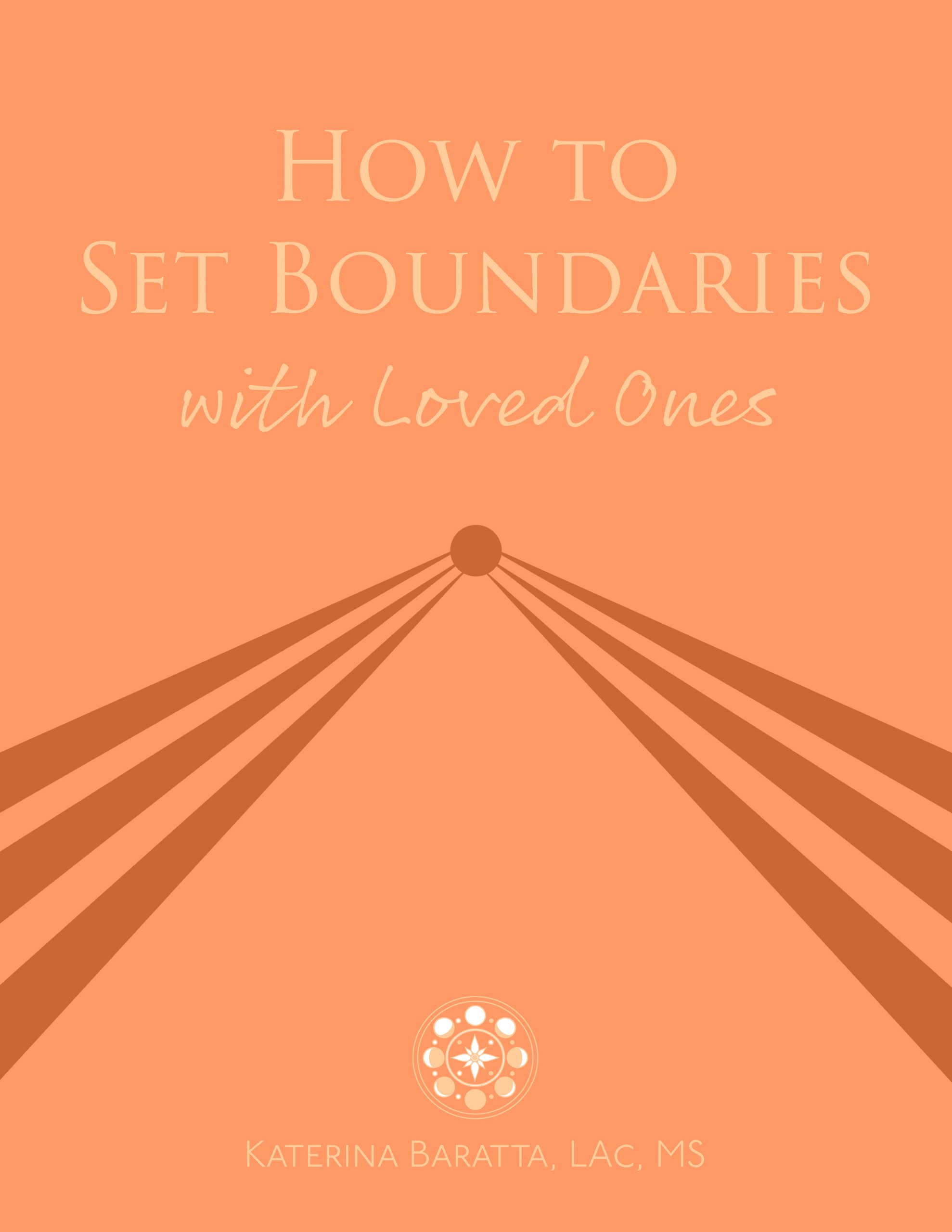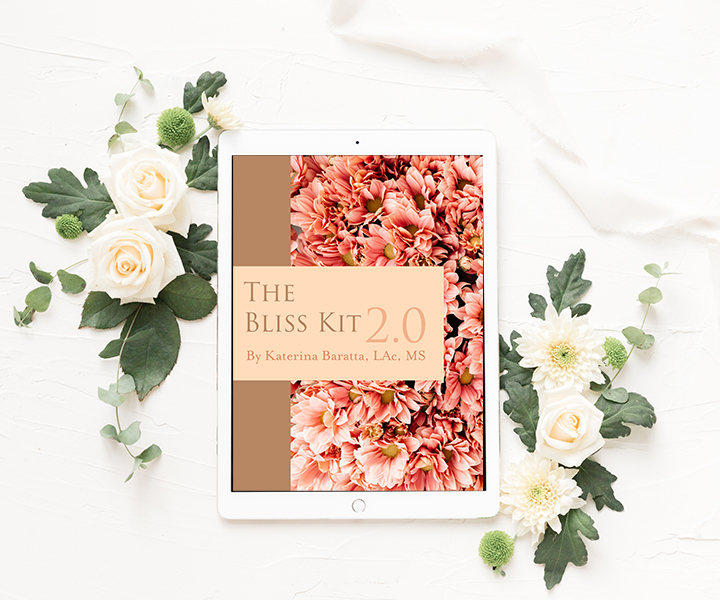Boundaries help you to have healthy relationships with others and yourself.
But if you are big-hearted and sensitive, it’s likely that you never learned how to set clear and compassionate boundaries with loved ones.
Because you’re always thinking about how everyone else is doing, and a lot of the time this means neglecting yourself.
But even though you’re doing this to try to keep loved ones close, in reality relationships suffer and mental health problems arise when you don’t establish clear boundaries.
This video and article are here to help you feel more comfortable setting boundaries so you have more energy to show up for life the way you want to.
Here’s what we’re going to cover:
- What are boundaries?
- The benefits of setting boundaries (and what happens when you don’t)
- 3 reasons why setting boundaries can feel so stressful, especially at first
- A 3 part formula to help you set firm and compassionate boundaries with loved ones

Want scripts to help you firmly and compassionately set boundaries with loved ones?
Enter your name and email now to download your free PDF.
What are boundaries?
Boundaries are the limits we set in relationships.
What are the benefits of setting boundaries?
Boundaries allow you to:
- Feel safe
- Live with integrity
- Prioritize the things that help you feel your best
- Make choices that feel good to you
- Regulate your emotions
- Show up for life the way you want to
- Have more energy for the things that are important to you
- Align yourself with your values and who you really are
- Have more loving & authentic relationships
- Feel more fulfilled and less anxious
On the other hand, when you don’t have clear boundaries, you end up feeling:
- Stressed
- More easily overwhelmed
- Dissociate from your body and the signals it is sending you
- Resentful
- Insecure
- Anxious
- Exhausted
In the beginning, setting boundaries might make you feel guilty or uncomfortable.
Your heart rate speeds up.
You start to sweat.
Your stomach tightens and your throat feels like you have a plum pit stuck in it.
This is all normal.
And it’s happening for a few reasons.
There are 3 reasons why setting boundaries can feel stressful at first.
1. First off, your body is primed for survival.
All of your thoughts, emotions, and behaviors have been shaped to promote the survival of your body.
And pleasing others is part of the survival instinct.
This started when you were a baby, when you were completely dependent on others for your physical survival.
And if your caregivers didn’t know how to validate your needs and emotions, you learned that it wasn’t safe to express your needs and emotions.
So you did whatever you had to do to please them instead.
This lead to what’s called a fawn response.
The fawn response is when you try to appease or please a person who is a care provider and/or a source of threat.
So when you start to set boundaries as an adult, it can feel like a threat to your survival.
Because in the past it really was.
2. The second reason setting new boundaries can feel stressful is because establishing new behaviors can be difficult.
We are creatures of habit for a reason.
Our brains create neural connections every time we think, feel, or behave in a certain way.
And your brain likes to save energy.
So the connections that are repeated the most create highway-like connections that are easier to follow than newer, more indirect paths.
This makes new thoughts, feelings, and behavior feel more difficult at first, until they have established their own neural super-highways through repetition.
3. And finally, unpracticed behaviors are also uncomfortable because you don’t know what’s going to happen.
You’ve been a people pleaser your whole life, and it has led to predictable results.
That predictability makes you feel safe.
You know that when you put the needs and wants of those around you above your own, you’ll avoid conflict and the discomfort of disappointing others.
So even if this people-pleasing behavior ends up harming you, you keep doing it because you know what you can expect when you do.
And others tend to reward you for it because they’re getting exactly what they think they want.
The truth is, others might not respond the way you want them to when you start setting boundaries.
In fact, they probably won’t.
They may be angry or disappointed, especially if you’re changing patterns that’ve been around for long time.
They might blame you and resent you for suddenly prioritizing your own needs.
They might call you selfish and accuse you of being uncaring.
And these reactions might lead you to fear that by setting boundaries you’re pushing people away.
Frankly, it sucks.
And this is why it sometimes feels so much easier to just keep doing what you’ve been doing, putting other people’s wants and needs ahead of your own.
But in reality, when you clarify your boundaries you’re setting up guideposts so they can be closer to you.
It’s when you lie to yourself and others that a sense of separation occurs.
Remember, boundaries aren’t just about saying “No”.
They’re how you make space in your life so you can say “Yes” to the things that are important to you.
Boundaries enable you to show up for life the way you want to, without as much stress, anxiety, resentment, or overwhelm.
And as a result, the more you practice setting boundaries, the lighter you feel.
The good news is, through compassionate, open, and honest conversation, you can (almost) always find solutions that work for everyone.
And I’ll explain how to do this in a moment.
So while the initial reaction might be uncomfortable, the ultimate result is that everyone is elevated.
Because by clarifying your own boundaries, you’re also other people figure out their own priorities and show up more authentically in their own life.
And lastly, remember: boundaries can change over time.
You are a living being, which means that things are constantly shifting in your life.
As your circumstances change, your boundaries will too.
Keep checking in with yourself about where your reactions are coming from, and what you need in order to align your thoughts and behaviors with what you want.
Stay open and honest and everyone will benefit, including you.
Here are 3 steps to firmly and compassionately set boundaries with loved ones:
1. Honestly express appreciation/acknowledge the others’ feelings
2. Let them know your feelings/needs/desires clearly, without blame or judgement
3. Allow them to express their own feelings/needs/desires, but know that you don’t need to change yours to accommodate them. Their response is their responsibility, not yours.






